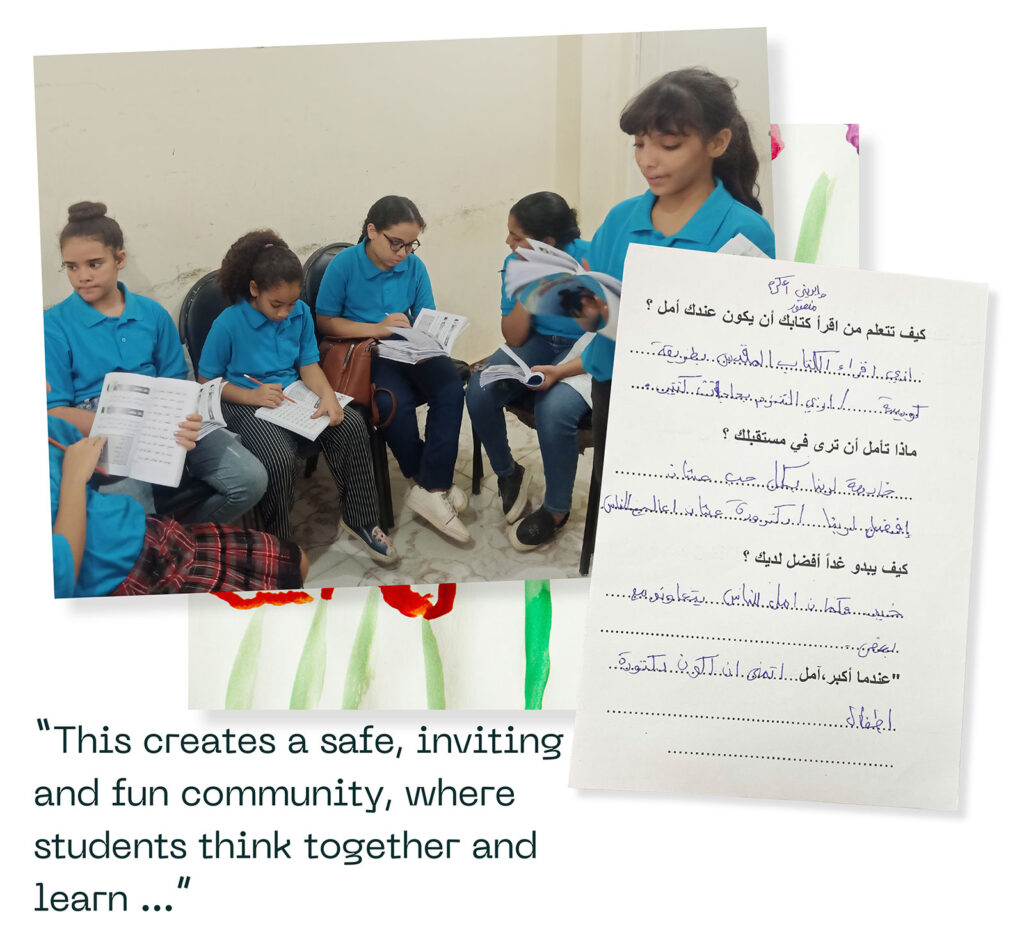Ten-year-old Sarah lives in a village in Upper Egypt and had difficulty speaking. Other children bullied her and made fun of her, and she lost all self- confidence. She stopped speaking altogether. Her school attendance was off and on. She wouldn’t attend church very often. She never got involved in either. She refused to see a doctor.
“So many children get lost in the system,” says Amir, CEO of Bible Society Egypt (BSE). “They drop out of school because they are not being taught, or they are too far behind, or they are expected to help the family work at home … or for other reasons.”
For 24 years, Bible Society Egypt have been reaching children in poor and uneducated areas, helping them to learn and maintain literacy skills, and giving them the best opportunity to build their future.
“Because the teaching is all based on the Bible, there is the natural component of the biblical perspective on life, which is one of a future and a hope,” says Amir. “The classes connect people with the church, where they have fellowship and spiritual input. They get advice and help and wisdom — in class, from the lesson, from the discussion together, from each other, and also from leaders and priests.”
Adel, the program coordinator explains, “These children are facing difficulties and discouraging circumstances, and it is so important to encourage them and help them get through the difficult times, equipping them with training and tools to know how to deal with difficulties and to persevere.” He goes on, saying, “Our focus on the development of skills, whether it be intellectual skills or behavioural skills, all leads to stronger self-confidence, and real, positive change, bringing awareness and the possibilities of hope and a future.”
 Sarah’s story took a turn for the better when she discovered Bible Society’s post-literacy class running at her church. In these classes, a different method of education is used than what is found in schools. Bible Society focuses on participation and application rather than memorisation, with students encouraged to think for themselves, discuss and participate in the process. Adel says, “This creates a safe, inviting and fun community, where students think together and learn to respect each other according to the class code, and together, their way of thinking and learning is changed.”
Sarah’s story took a turn for the better when she discovered Bible Society’s post-literacy class running at her church. In these classes, a different method of education is used than what is found in schools. Bible Society focuses on participation and application rather than memorisation, with students encouraged to think for themselves, discuss and participate in the process. Adel says, “This creates a safe, inviting and fun community, where students think together and learn to respect each other according to the class code, and together, their way of thinking and learning is changed.”
It was this class code of conduct which helped Sarah feel safe in the classes. Adel adds, “No
one is allowed to make fun of anyone else, and students must listen to each other and take turns sharing and not interrupt one another. Teachers are deliberately trained to create a relaxed, friendly and fun atmosphere. Students know that no one will laugh at them or reject them. Students learn that their personal input is valuable and will be valued.”
In the small group time of participation, where listening and pronunciation were emphasised, Sarah was able to really hear the articulation of words for the first time. With the focused help of the teacher, Sarah slowly started to talk.
Sarah’s family — overcome with gratitude and emotion — saw this as a miracle, brought about by the protection and security of the class environment, and the methodology of Bible Society’s literacy course. By the time Sarah reached the second level of the program, she had gained such confidence that she would take the initiative to speak during class. Even better, Sarah naturally became more involved at both school and church.
“The participatory approach of the program is especially designed to help youth and children learn how to think for themselves, and not to depend on others,” says Adel. “When students come into our program for the first time, the majority of them have very little tolerance or ability to discuss,” Amir explains. “In all areas of life, people in this society are not expected to question or to disagree.”
In BSE’s program, students are taught how to think, by learning to focus and remember, learning to listen and how to pronounce the proper vowels, learning to discuss and understand together, learning how to apply, and how to make practical connections with the real world. After participating in BSE’s course, students learn to become independent thinkers. “This is one of the things that we need most in Egypt for our youth and children to build a better future for themselves,” says Adel.
Adel poses the question, “Why do we place such emphasis on teaching the children how to think?” Providing his own answer, he responds, “So that they can learn how to make decisions for their own lives, and confidently face the future.”